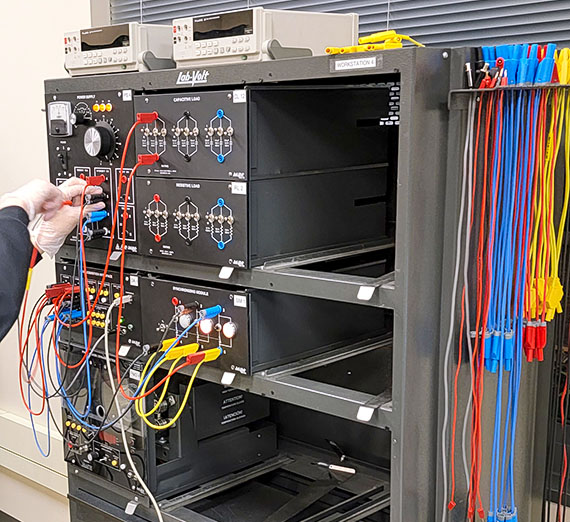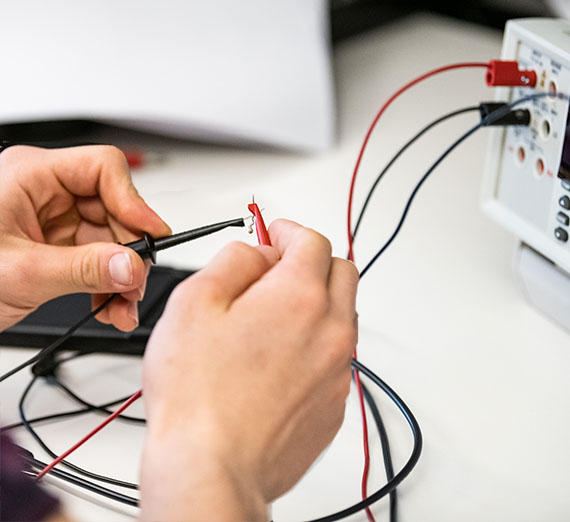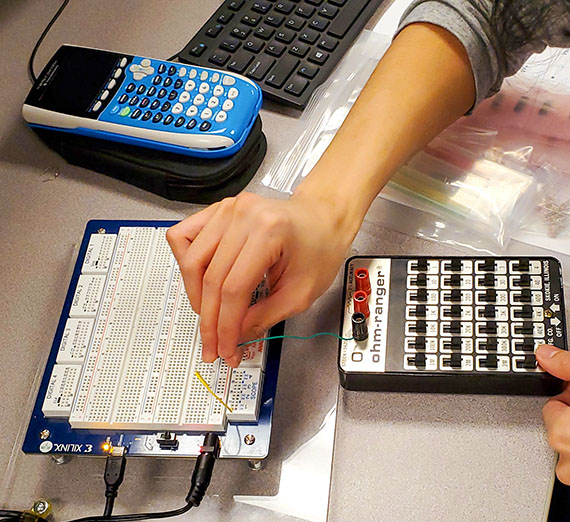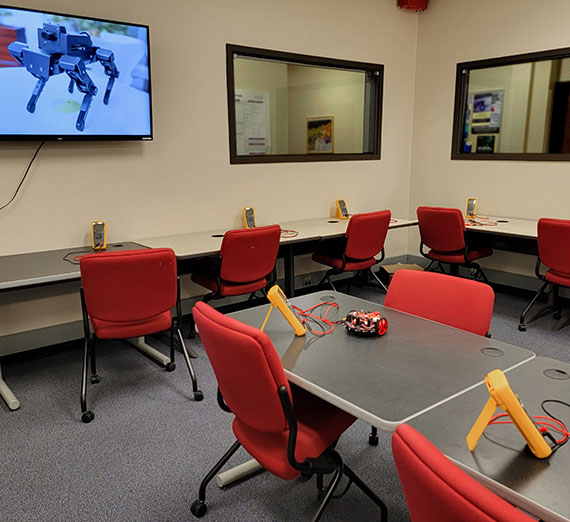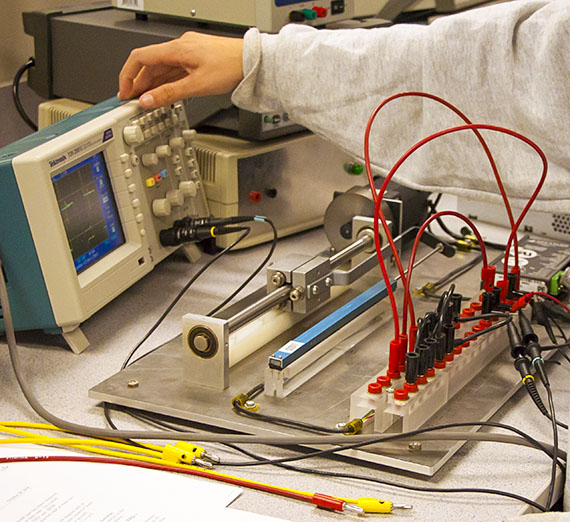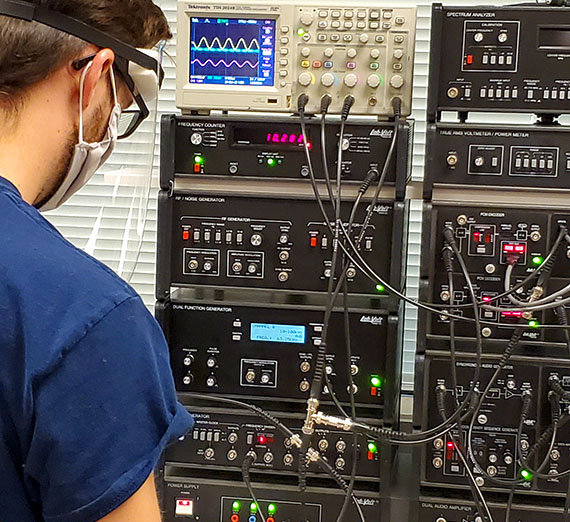Gonzaga's Electrical Engineering instructional labs are used in multiple courses across different engineering disciplines, including Mechanical Engineering, Computer Engineering, and the Robotics concentration.
These labs bridge the gap between the theoretical concepts learned in lecture courses and the practical application needed for a career.
Many are also available to the Senior Design teams and Engineering/Computer Science Academic Clubs.

